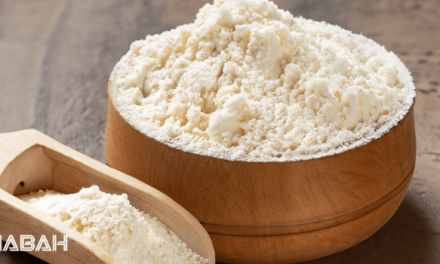In this comprehensive guide and analysis, we delve into the world of carrageenan, a widely used food additive, to find out if E407 is halal.
By understanding the halal certification process of carrageenan, we can make informed choices about the products we consume, ensuring they align with our religious beliefs. Read on before your next shopping trip.
Understanding E407
Carrageenan, also known by the E Number E407, is a food additive that is commonly used as a thickener, stabilizer, and emulsifier. However, there has been some uncertainty around whether carrageenan is halal. This article will examine the evidence surrounding the halal status of carrageenan (E407).
Specifically, this article will:
- Provide background information on what carrageenan is and how it is produced
- Analyze the evidence regarding carrageenan’s halal status
- Evidence it is halal
- Counterarguments
- Offer a definitive conclusion on whether E407 carrageenan should be considered halal
What is Carrageenan (E407)?
Carrageenan is a gum extracted from red seaweed that falls under the broader category of hydrocolloids. Specifically, it is derived from species of red algae such as:
- Chondrus crispus
- Eucheuma denticulatum
- Gigartina stellata
Carrageenan serves a variety of functions in food products:
- Thickening agent
- Stabilizer
- Emulsifier
- Food binder
- Processing aid
- Filler
- Fat substitute
Some common uses of carrageenan in foods include:
- Dairy products like ice cream, chocolate milk, yogurt
- Meat products like deli meats, sausages, canned meat
- Infant formula and soy milk
- Desserts and jellies
- Beverages
Carrageenan is approved for use in food products in over 100 countries around the world. It is generally recognized as safe (GRAS) by food regulatory agencies.
The production process of carrageenan from seaweed does not introduce any animal-derived ingredients. It is made through a filtering process using only water and potassium chloride.
Evidence of Carrageenan’s Halal Status
There are several strong pieces of evidence that indicate carrageenan (E407) is halal:
It is plant-based and no animal products/alcohol are used in production
Carrageenan is extracted from seaweed, so it is 100% plant-based. The production process does not introduce any animal-derived ingredients. As quoted from one source:
“Carrageenan is harvested from a natural vegetarian source – seaweed. No animal products or byproducts are used in the production of carrageenan.”
Major halal certification organizations have approved it
Many prominent halal certifiers like JAKIM in Malaysia and SANHA in South Africa have reviewed the production process and declared carrageenan to be halal:
“SANHA Halaal Certified – This product is Halaal suitable.”
Carrageenan suppliers state it is halal on their websites
Reputable carrageenan manufacturers explicitly confirm the halal status of their carrageenan products:
“Carrageenan is extracted from red seaweed by use of water and potassium chloride. It does not contain any animal derivatives or alcohol. Hence it is Halal.”
No scholarly evidence or fatwas declaring it haram
There are no major scholarly opinions or fatwas that explicitly prohibit or restrict the use of carrageenan. The available religious decrees and academic analysis indicate it is permissible.
In summary, the production methods, halal certifications, manufacturer claims, and lack of prohibition all strongly point to E407 carrageenan being halal.
Potential Counter arguments
While the evidence suggests carrageenan is halal, there are some counterarguments that have been raised:
Some claim that carrageenan may come from wine filtrate
There are assertions that carrageenan may be derived from the filtration process of wines or beers. However, major carrageenan producers dispute this claim:
“Our carrageenan does not come from filtration of wines or beers. It comes directly from seaweed farmed and harvested for the purpose of producing carrageenan.”
There are internet rumors of it containing pork products
Some online sources allege carrageenan contains pork derivatives like gelatin. But these appear to be unsubstantiated rumors without any verification from reputable organizations.
As one supplier responded:
“Carrageenan does NOT contain any pork products or derivatives.”
A few minor blogs have deemed it haram
A handful of lesser-known internet sites have claimed carrageenan is haram. However, they do not provide scholarly citations for this viewpoint.
Overall, these counterarguments questioning the permissibility of carrageenan seem to be based on misinformation rather than evidence. The production process and mainstream certifications support that E407 is halal.
Frequently Asked Questions – Is E407 Halal?
What is E407?
E407 is a food additive commonly known as carrageenan. It is derived from red seaweed and used as a thickener and emulsifier in various food products.
Is E407 halal?
Yes, carrageenan (E407) is considered halal. It is derived from plant sources, specifically red seaweed, and does not involve any animal ingredients or alcohol in its production.
How is E407 obtained from seaweed?
Carrageenan (E407) is extracted from red seaweed through a process that involves grinding, filtration, and drying. The resulting powder is then used as a food ingredient.
Is carrageenan a halal ingredient?
Yes, carrageenan is a halal ingredient as it is derived from plant sources. It is widely used in the food industry as a thickener, stabilizer, and gelling agent.
Is E407 used in halal food products?
Yes, E407 (carrageenan) is used in various halal food products as a safe and permissible thickening and gelling agent. It is compliant with Islamic dietary guidelines.
Can E407 be derived from haram sources?
No, E407 (carrageenan) is derived from red seaweed and does not involve any haram sources such as alcohol, pork, or any other animal ingredients. It is considered halal.
Is E407 suitable for vegans?
Yes, E407 (carrageenan) is suitable for vegans as it is derived from plant sources (red seaweed) and does not contain any animal ingredients or by-products.
Is there a specific halal certification for E407?
While there is no specific halal certification required for E407 (carrageenan), it is generally considered halal as it is derived from plant sources and does not involve any haram substances in its production.
Is E407 widely used in the food industry?
Yes, E407 (carrageenan) is widely used in the food industry as a versatile ingredient. It is used in a variety of products including dairy, beverages, baked goods, and confectionery items.
Is E407 safe for consumption?
Yes,
Conclusion
In conclusion, the totality of evidence indicates that carrageenan (E407) should be considered permissible and halal for Muslim consumption:
- Carrageenan is derived from seaweed through a process that does not introduce any haram substances.
- The production methods have been verified and approved by major halal certification organizations worldwide.
- Reputable carrageenan manufacturers unambiguously state that their products are halal.
- There are no widely accepted scholarly opinions or fatwas prohibiting carrageenan.
- Counterclaims questioning the halal status of E407 seem to be unproven allegations without strong supporting evidence.
As one industry source summarized:
“Carrageenan definitely meets all Islamic requirements to be classified as a Halal product.”
Given the abundance of evidence that carrageenan is halal, and lack of firm evidence to the contrary, the designation of E407 as a permissible additive for Muslims appears to be justified. Of course, observant Muslims should conduct their own research and decide for themselves on this issue. But the broad consensus points toward carrageenan being halal.





